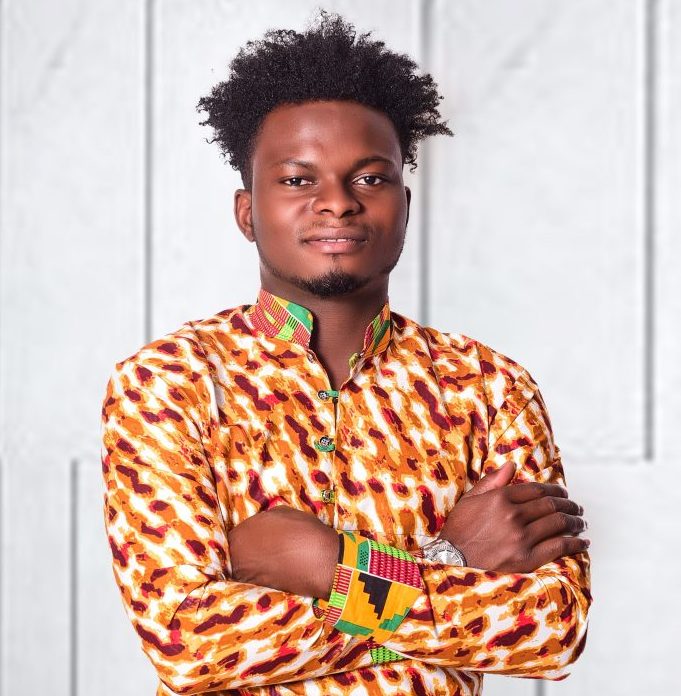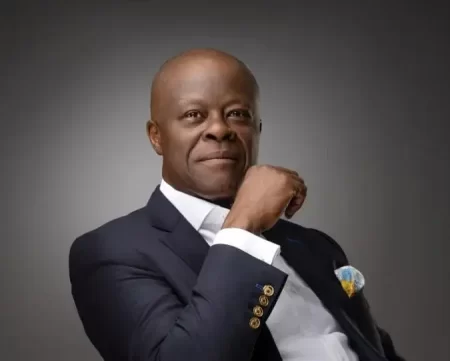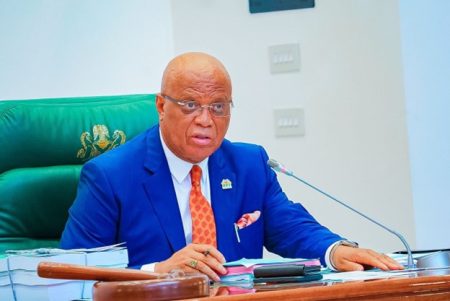
*Jeremiah Thoronka invented a device that uses kinetic energy from traffic and pedestrians to generate clean power
*Actor and humanitarian Hugh Jackman announces Jeremiah as the winner of the inaugural Chegg.org Global Student Prize
*Winner revealed at a ceremony taking place at UNESCO’s headquarters in Paris
Paris, France — Jeremiah Thoronka, a student from Sierra Leone who invented a device that uses kinetic energy from traffic and pedestrians to generate clean power, has been named the winner of the Chegg.org Global Student Prize 2021. Jeremiah is the first winner of this new $100,000 award, which is given to one exceptional student who has made a real impact on learning, the lives of their peers and on society beyond.
Jeremiah, a 21-year-old student from Freetown, Sierra Leone, was selected from over 3,500 nominations and applications from 94 countries around the world.
Actor and humanitarian Hugh Jackman announced Jeremiah as the winner of the inaugural Chegg.org Global Student Prize as part of a virtual ceremony broadcast from UNESCO’s headquarters in Paris.
The Varkey Foundation launched the Chegg.org Global Student Prize earlier this year, a sister award to its $1 million Global Teacher Prize, to create a powerful new platform that shines a light on the efforts of extraordinary students everywhere who, together, are reshaping our world for the better. The prize is open to all students who are at least 16 years old and enrolled in an academic institution or training and skills program. Part time students as well as students enrolled in online courses are also eligible for the prize. This year also saw US teacher Keishia Thorpe named as the winner of the Global Teacher Prize 2021.
Jeremiah Thoronka was born amid the fighting of the Sierra Leone civil war and grew up with his single mother in a slum camp for displaced people on the outskirts of the capital Freetown, having to burn charcoal and wood for lighting and heating. Jeremiah saw with his own eyes how, in addition to the photochemical smog making respiratory problems commonplace, his young contemporaries fell behind in their schoolwork because of a lack of decent lighting.
Energy poverty is a major issue in Sierra Leonne – with just 26% of the population having access to electricity. In rural parts of the country, only 6% of people have electricity access, with most turning to solar lanterns and dry-cell batteries. As a result, it’s led to the destruction of forests as people chop down trees for firewood, which leaves Sierra Leone highly vulnerable to extreme events like flooding and landslides. Families’ reliance on firewood and cheap kerosene generators also lead to frequent house fires.
These life-threatening disadvantages and hardships fuelled Jeremiah’s passion for renewable energy and climate change advocacy. At 17, when studying at the African Leadership University in Rwanda, he launched a start-up called Optim Energy that transforms vibrations from vehicles and pedestrian footfall on roads into an electric current. It is different from established renewable energy sources including wind or solar because it generates power without relying on changeable weather. At the same time, no battery and no electricity connection to an external power source is needed.
Optim Energy ran a successful pilot program in Jeremiah’s neighbourhoods, Makawo in the northern part of Sierra Leone and Kuntoluh east of Freetown. With just two devices, the start-up provided free electricity to 150 households comprising around 1,500 citizens, as well as 15 schools where more than 9,000 students attend.
Jeremiah is currently developing plans to expand into the healthcare sector, which needs power to chill medicines and vaccines and create sufficient light for treating patients after dark.
Jeremiah is a United Nations Academic Impact Millennium Fellow and Optim Energy was voted the most Innovative Energy Start-up 2020 by United Nations Major Group on Children and Youth (UNMGCY), and the Sustainable Development Goal (SDG) 7 Youth Constituency. Jeremiah is also one of the World Wildlife Fund’s top 100 Young African Conservation Leaders. Should he win the Global Student Prize, Jeremiah will use the prize money to expand Optim Energy to reach 100,000 people by 2030.
The other top 10 finalists for the Global Student Prize 2021 were Amisa Rashid from Kenya, Ana Julia Monteiro de Carvalho from Brazil, Kehkashan Basu from Canada, Lamya Butt from the UAE, Elliott Lancaster from the UK, Matine Khalighi from the US, Mirko Cazzato from Italy, Oluwadamilola Akintewe from Nigeria and Seema Kumari from India.
Actor and humanitarian Hugh Jackman said:
“Students everywhere are fighting for their very future. They are part of a generation that are on the frontline of the greatest challenges of our time – from climate change to global inequality. So, we must listen to their voices and shine a light on their stories.
“Congratulations Jeremiah. You have made an enormous difference to your community and far beyond. I am sure that you will now use this incredible platform to make an even bigger impact.”
Chegg.org has partnered with the Varkey Foundation to create the new Global Student Prize. Dan Rosensweig, CEO & President of Chegg, said:
“My warmest congratulations to Jeremiah. His inspirational work in pioneering clean, affordable energy makes him a thoroughly deserving winner of the inaugural Chegg.org Global Student Prize. This prize honors students everywhere. While many stakeholders are busy debating, students like Jeremiah are busy doing. They truly are the changemakers our world needs.
“And congratulations to Keishia for her incredible work in opening up access to college education for low-income, first-generation American, immigrant and refugee students.”
Sunny Varkey, Founder of the Varkey Foundation, said:
“Congratulations to Jeremiah for becoming the first ever winner of the Chegg.org Global Student Prize and to Keishia for winning the Global Teacher Prize 2021. Their incredible stories show the vital role education plays in tackling the great challenges of today and tomorrow.”
Stefania Giannini, Assistant Director-General for Education at UNESCO, said:
“Congratulations to Keishia for winning the Global Teacher Prize 2021 and Jeremiah for winning the Global Student Prize 2021. UNESCO was proud host to this year’s Global Teacher Prize ceremony at our headquarters in Paris. Inspirational teachers and extraordinary students alike deserve recognition for their commitment to education amid the learning crisis we see today. Now more than ever, we must honor and support our teachers and students as they look to rebuild a better world in the wake of COVID.”
Applications and nominations for this year’s Global Student Prize opened on Tuesday 2 February 2021 and closed on Sunday 16 May 2021.
Students who applied for the Global Student Prize were assessed on their academic achievement, impact on their peers, how they make a difference in their community and beyond, how they overcome the odds to achieve, how they demonstrate creativity and innovation, and how they operate as global citizens.
The winner of the Global Student Prize was chosen from the top 10 finalists by the Global Student Prize Academy, made up of prominent individuals who have a history of mentoring students in their studies or careers, having campaigned on behalf of student issues or having expertise in education and young people.
If students were nominated, the person nominating them was asked to write a brief description online explaining why. The student being nominated was then sent an email letting them know they had been nominated and inviting them to apply for the prize. Applicants were able to apply in English, Mandarin, Arabic, French, Spanish, Portuguese and Russian. To join the conversation online follow @TeacherPrize and @cheggdotorg


